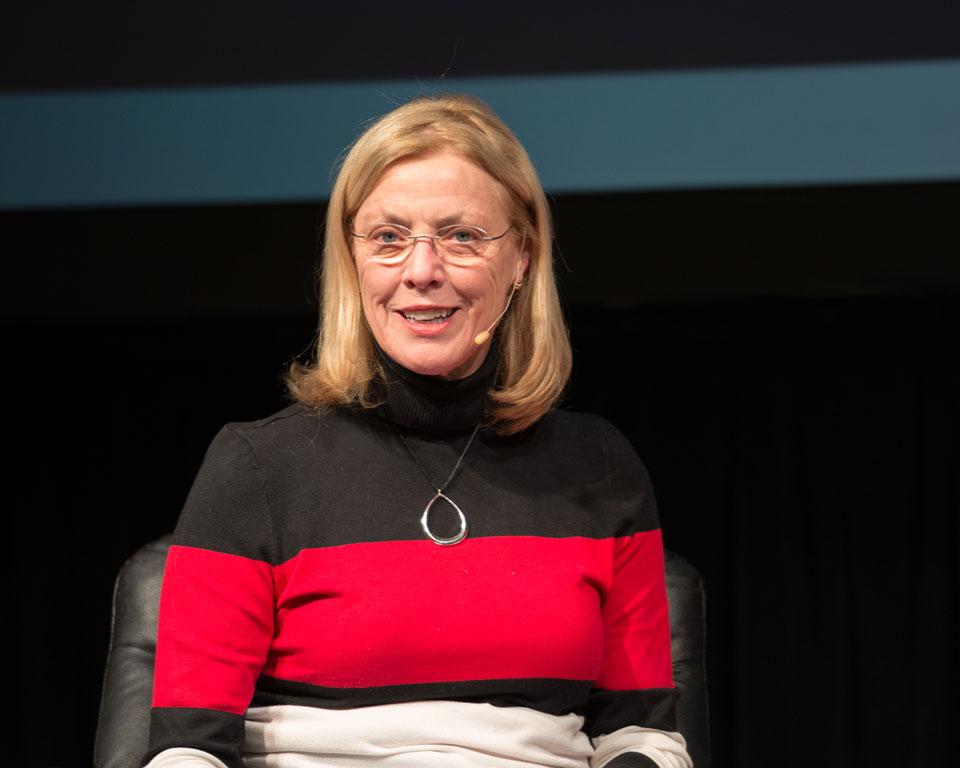President Harrison Addresses National Leaders in Washington, D.C. at Association of American Colleges and Universities Centennial Conference Plenary
The quality of young Americans’ higher education will make or break our nation’s future in the global economy. California State University, Northridge President Dianne F. Harrison addressed national leaders on this topic at the recent Association of American Colleges and Universities (AAC&U) centennial symposium in Washington, D.C.
Harrison presented as part of a plenary session, “Mobilizing Bold Leadership for America’s Global Future,” that included leaders from Mount Holyoke College, the Massachusetts Department of Higher Education, the Lumina Foundation and the S. Engelhard Foundation. The session explored how leaders in philanthropy, policy and education can make the quality of students’ college learning a national priority and a shared achievement.
“The issue of preparing problem-solvers for our future is really critical,” Harrison said. “We want all college graduates to possess specific competencies when they finish: the ability to problem solve, to think critically, to think creatively, to communicate, to be culturally competent and work in a team — things that will carry graduates into the future, no matter what that future is.”
The daylong national conference, “America’s Global Future: Are College Students Prepared?” was designed as a “deep dive” for leadership teams — presidents, senior academic leaders, and key partners such as trustees, employers and policy leaders.
AAC&U advocates for the quality, vitality and public standing of undergraduate liberal education, according to its mission statement. Founded in 1915, the organization counts nearly 1,350 member institutions, including public and private colleges, community colleges, research universities and comprehensive universities. Harrison served on the AAC&U board of directors from 2011 to 2014.
The organization also featured Harrison and CSUN in its recently released centennial video, which explores the power of “an engaged, public-spirited liberal education to transform students’ lives and address the ‘big questions,’” according to the AAC&U. The video spotlighted just a handful of member institutions, including CSUN, Cal State Fullerton, Michigan State University and The College of Wooster in Ohio.
In its opening minutes, the video introduces CSUN fourth-year student Bobby Lebeda and Harrison, talking about best practices for 21st-century liberal education.
“It really has to be an institutional effort, understanding what it is that we’re trying to achieve with our students, what our students are trying to achieve,” Harrison said. “I think AAC&U is encouraging us to ensure that all of our students have culminating experiences, so that they can demonstrate that they have the skill set needed to do analysis, to do research, to think about problems as they affect the wider society.”
The video highlights the national organization’s commitment to experiential, problem-based education to foster undergraduates’ future success. CSUN shares these priorities, with a commitment to experiential education that contributes to and solves problems in the surrounding community.
As part of CSUN’s student-run Theatre Guild, Lebeda is working on a yearlong documentary project studying “emotional eating” and how it impacts college students, he said in the video.
“The cool thing here is you do a lot of projects that are designed to be outside of the class,” said Lebeda, who is studying cinema and television arts, with an emphasis in screenwriting.
“Seeing how emotional eating has impacted my life and those around me, I want to shed some light on the problem,” he said of his documentary. “That’s a huge project that I’m working on outside of the class that I wouldn’t have had the opportunity to have unless I went to Cal State Northridge. … Once I started doing those projects, I started to make connections with other people, I started to feel more confident and I think those skills are transferable to any profession.”
The video also includes David Rattray, senior vice president for education and workforce development for the Los Angeles Chamber of Commerce, visiting the CSUN campus. Rattray commented on the economic value of college graduates who are ready to go to work and employ their knowledge. Those graduates, he said, will “get a job, keep a job and do well.”
To mark its 100th year, AAC&U is exploring what its leaders have dubbed “the equity imperative”— the need to provide an empowering liberal education to the rapidly growing “new majority” of college students who have, traditionally, been underserved in higher education.
“We’re also talking about inclusive excellence. We are a minority-serving institution. We have a large number of students, and many of them are first generation,” Harrison said. “We talk about cultivating talent. We want all of our students to have these kinds of opportunities for excellence and high-quality learning.”
Serving more than 40,000 undergraduate and graduate students each year, CSUN is one of the largest universities in the United States. CSUN ranks 16th in the country in awarding bachelor’s degrees to underrepresented minority students, fifth nationally in awarding master’s degrees to Hispanic students, and enrolls the largest number of deaf and hard-of-hearing students of any U.S. state university. CSUN is recognized for the opportunities it provides students to climb up the social and economic ladder. The university was recently ranked as the fifth-best in the country for enhancing the social mobility of its students, in a study by Payscale and College Net.


 experience
experience